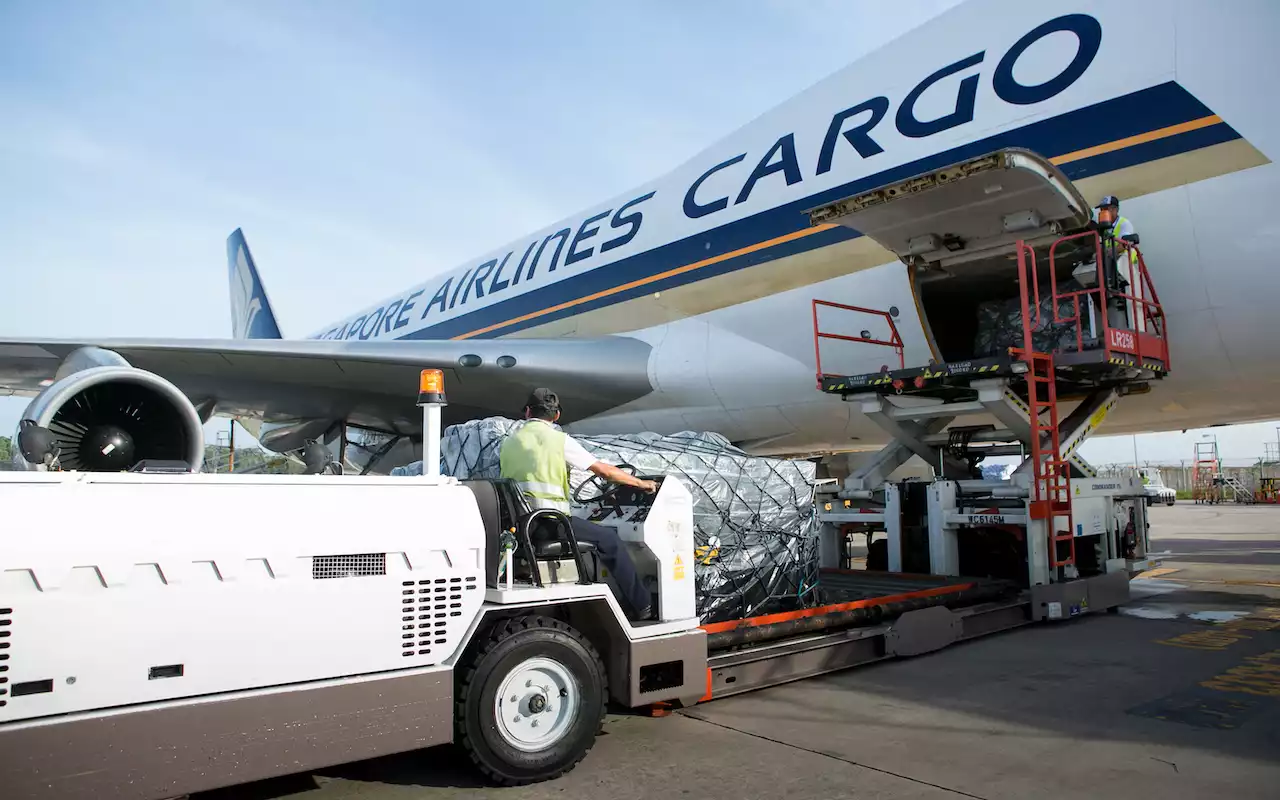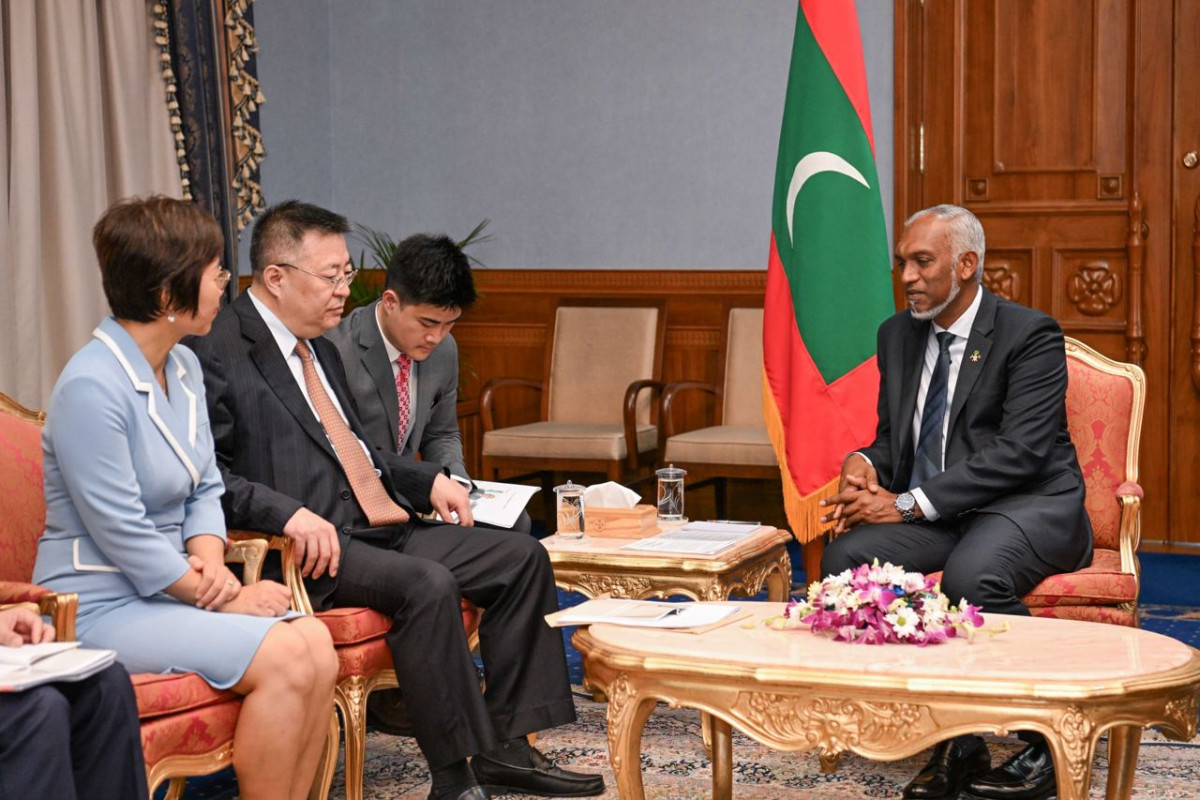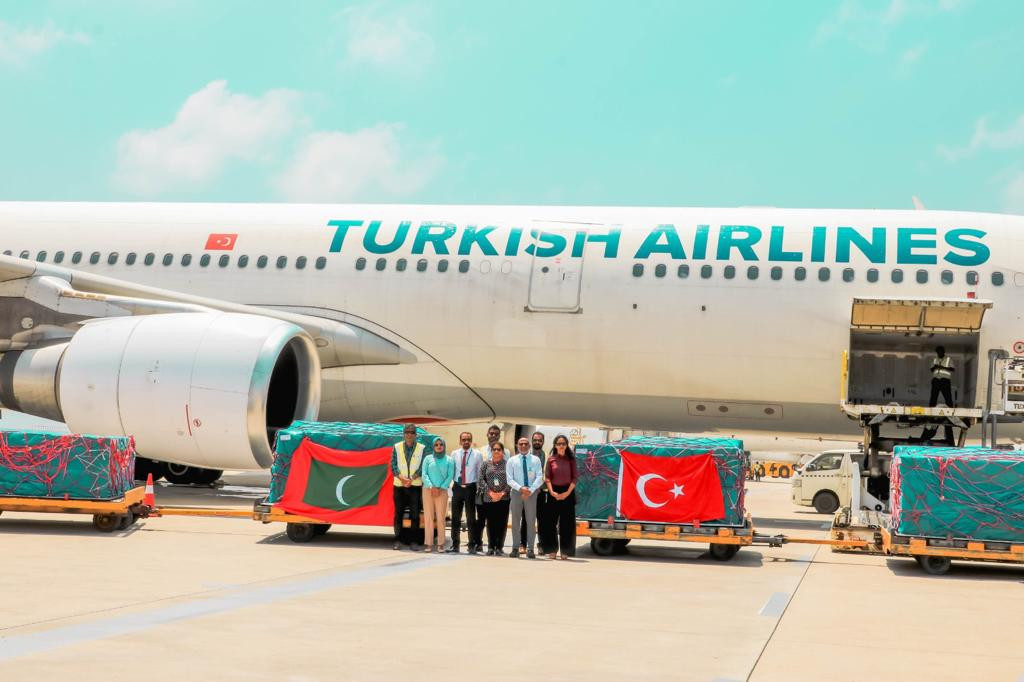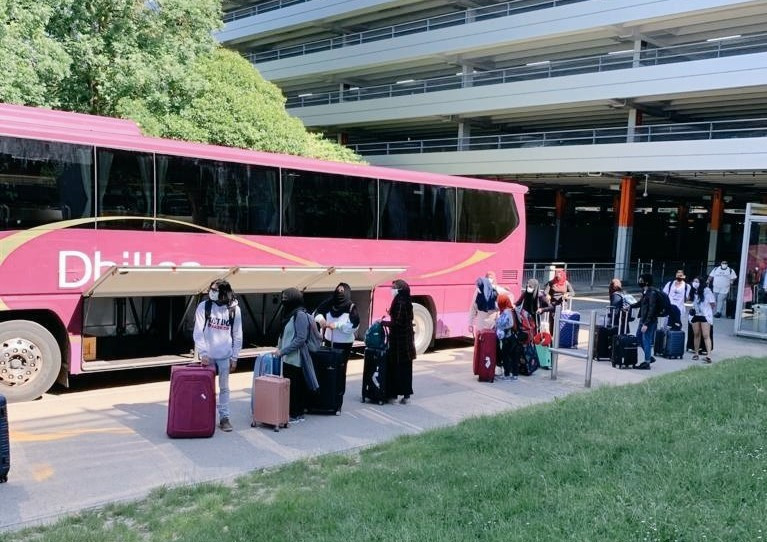Over 60,000 expats working illegally in Maldives, says Immigration
There is a total of 144,607 expatriate workers in the Maldives currently

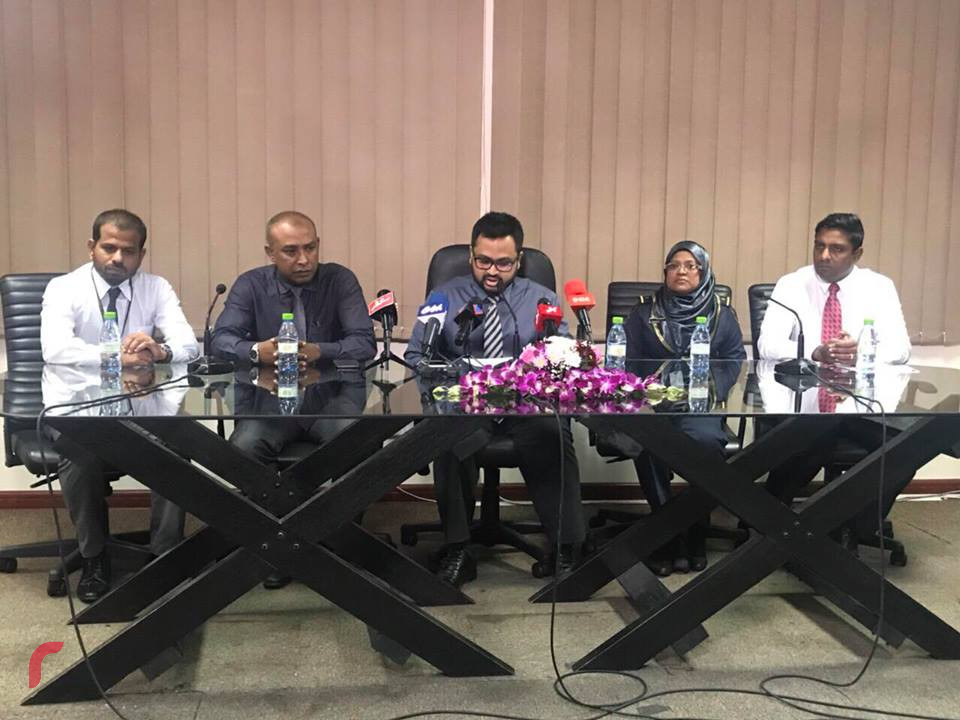
Maldives Immigration held a press conference on Thursday morning
Maldives Immigration has on Thursday said that there are over 60,000 people working in the country ‘illegally.’
Speaking at a press conference on Thursday morning, Controller General Mohamed Ahmed Hussain said that while there is a total of 144,607 expatriate workers in the Maldives, that 63,000 are undocumented.
He said that a special programme was launched ‘to minimize the undocumented migrants’ on January 2. ‘Operation Stingray’ is to be carried for a one-year period.
Noting that arresting and imprisoning the undocumented workers ‘is not the best solution,’ the controller general said that the public’s cooperation is required to control the issue.
He said that expat quotas have been issued in violation of the country’s laws and regulations in the past, and called on all to refrain from doing so.
Mohamed Ahmed further urged the public to refrain from contacting immigration officials ‘to acquire assistance in doing unlawful acts by proposing material or financial benefits.”
He also noted that a number of individuals have been penalized over such cases, and emphasized that ‘the Immigration Act will soon be amended to strengthen the immigration enforcement.’
“Statistics of all the services, including the information of Quota and Employment Approvals will be published beginning from January 24, to raise public awareness and to mitigate the abusive advantages,” he added.
Furthermore, noting that a number of expatriate workers have been deported in the past, the controller general said that 513 were deported in 2018 as they were ‘unfit’ to work in the Maldives while 112 were deported on criminal allegations. This is 80 more compared to 2017.
At Thursday press conference, the controller general also announced that they will be accepting passport applications via e-mail ‘from next week,’ and that ‘an online portal for passport services will be introduced before the end of 2019.’
In addition, Maldives Immigration is working to create a mechanism that will allow the public to send in their complaints via email so that its officials can respond to the concerns ‘promptly.’ It will also establish a call centre in February ‘to enhance interaction with the community and to enable an easy way to communicate with public enquiries.’
